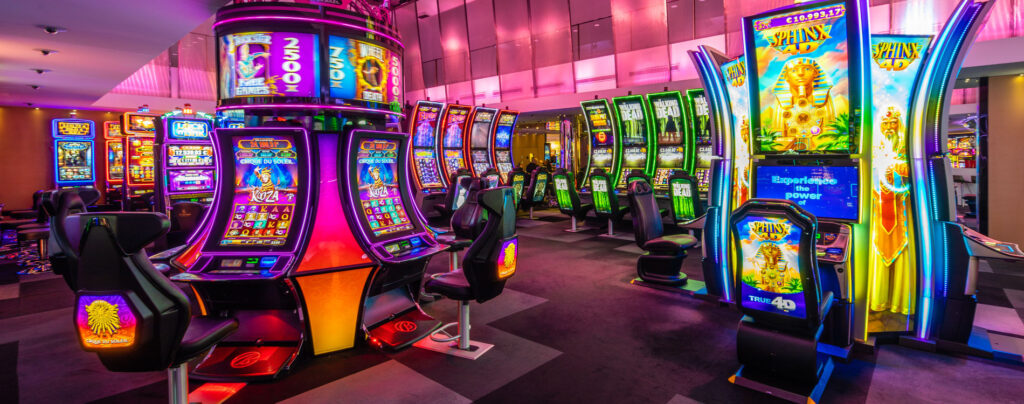The future of virtual reality VR slot machines holds immense promise, blending the world of gambling with cutting-edge technology to create a deeply immersive gaming experience. As VR continues to evolve, the integration of this technology into the casino industry is expected to reshape the way players engage with slot machines, offering a more interactive and realistic environment than ever before. One of the key aspects of VR slot machines is the heightened level of immersion they provide. Traditional slot machines are limited by the two-dimensional screens, basic sound effects, and physical constraints. However, with VR, players can step into a virtual casino where they are surrounded by 3D slot machines, interactive environments, and even other virtual players. This realistic and engaging experience could appeal to a new generation of gamers who are drawn to the interactive nature of video games and online platforms. Another exciting aspect of the future of VR slot machines is the potential for personalization and customization. Players will likely have the ability to personalize their gaming environments, avatars, and even the look and feel of the slot machines they play.

This increased control and personalization could significantly enhance the player’s overall experience, making it more engaging and tailored to individual preferences. Additionally, VR slots could introduce more interactive bonus rounds and mini-games, making the experience feel more like a video game than a traditional slot machine. Players might have to complete challenges or interact with virtual objects, adding an element of skill to the traditional luck-based game. Social interaction is another significant factor that could drive the success of VR slot machines. In the future, players may not only engage with the game but also communicate and collaborate with others in a virtual casino space. This multiplayer aspect can bring a sense of community to the gaming experience, where players can chat, share strategies, and even team up for certain in-game tasks. For many, this social aspect could make the experience much more enjoyable and engaging compared to solitary play on traditional machines.
Moreover, advancements in artificial intelligence AI and machine learning will play a role in the future of VR slot terpercaya machines. AI can be used to analyze player behavior and preferences, providing personalized recommendations or adjusting the game difficulty to suit individual skill levels. This kind of adaptability can keep players engaged longer and make the gaming experience more satisfying. However, there are challenges to be addressed. The cost of VR equipment and the technical expertise required to develop high-quality VR games may pose barriers for both operators and players. Additionally, there are concerns about responsible gambling. The immersive nature of VR could make it easier for players to lose track of time or money, raising concerns about gambling addiction. In conclusion, the future of virtual reality slot machines promises to revolutionize the gambling experience. With enhanced immersion, personalization, social interaction, and AI integration, VR slot machines could attract a broader audience and transform how people play casino games. However, careful consideration must be given to the challenges, ensuring that these advancements benefit both players and operators responsibly.